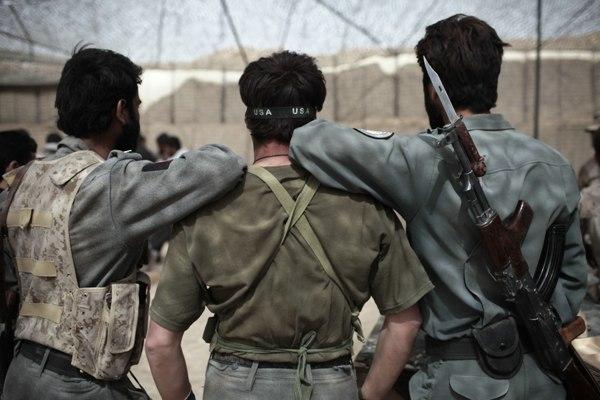This week in war

On Wednesday, President Obama announced a drawdown of 33,000 troops in Afghanistan by September of next year, basically recalling the (second) troop surge he authorized in December of '09. However, according to Pentagon spokesman Geoff Morell, Obama's top generals see the 2014 deadline the president has established for a complete “transition” to Afghan security responsibility as more of an “aspirational goal” than a rule. We can probably expect the Afghanistan transition to resemble Obama's Iraq model where U.S. brigade combat teams still patrol Iraqi streets as "non-combat troops."
Obama made a concerted effort to push democracy in his speech. He even defined what it means to be an American: “protecting our own freedom and prosperity by extending it to others.” But, quick to skirt any accusations of imperial hubris, the Commander-in-chief clarified:
“We stand not for empire, but for self-determination. That is why we have a stake in the democratic aspirations that are now washing across the Arab world.”
In Iraq, “democratic aspirations” faced another setback Thursday when at least 34 people were killed and dozens wounded in a string of bombings across the country. Officials are calling it the worst violence Iraq has seen in months. Among the targets were a marketplace and a largely Shi'ite neighborhood in Baghdad. That same day, a roadside bomb reportedly took the life of an American “finance expert” under contract with USAID. Several others were injured in the blast which took place outside the gates of the University of Baghdad.
Meanwhile, Iraqi Prime Minister Nouri al-Maliki is saying there is an “urgent necessity” to reduce the size of his cabinet in order to quell the internal conflicts. Much to the chagrin of his political partners, Maliki currently serves as both the Defense and Interior Minister. He has already made it clear that he has no immediate plans to appoint others to share power.
Finally, Italy has called for an immediate ceasefire on the Libyan front, revealing the ideological split among NATO member nations concerning the war. In spite of clandestine-only support from the United States and a complete lack of participation by major players such as Germany and Poland, NATO chief Anders Fogh Rasmussen remains convinced that the alliance will continue fighting “through the end.” Rasmussen said that NATO leadership is not considering Italy's call for a ceasefire on humanitarian grounds. Though, as an important staging ground for attacks from over the Mediterranean sea, Italy does have leverage with which to assert itself.




